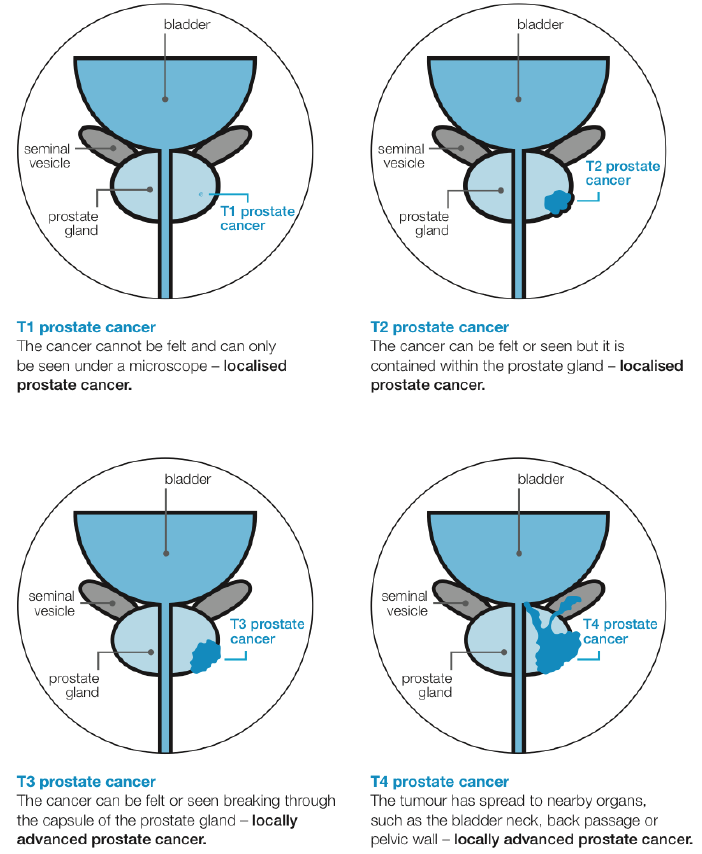Diagram of the staging of prostate cancer
The TNM staging system is the most common way that doctors stage prostate cancer. TNM stands for Tumour, Node, Metastasis.
Tumour (T)
Tumour describes the size of the tumour (area of cancer). This is a simplified description of the T stage. There are 4 main stages of cancer size in prostate cancer - T1 to T4.
TX means the main cancer (primary) can't be assessed.
T0 means there is no sign of cancer.
T1 - cancer is too small to be seen on a scan, or felt during examination of the prostate
T1a - cancer is in less than 5% of the removed tissue
T1b - cancer is in or more than 5% of the removed tissue
T1c cancers are found by biopsy, for example after a raised PSA level
T2 - the cancer is completely inside the prostate gland
T2a - the cancer is in only half of one side of the prostate gland
T2b - the cancer is in more than half of one side of the prostate gland
T2c - the cancer is in both sides but is still inside the prostate gland
T3 - the cancer has broken through the capsule of the prostate gland
T3a - the cancer has broken through the capsule of the prostate gland
T3b - the cancer has spread into the seminal vesicles
T4 means the cancer has spread into other body organs nearby, such as the back passage, bladder, or the pelvic wall.

Node (N)
Node (N) describes whether the cancer has spread to the lymph nodes.
NX means that the lymph nodes cannot be assessed
N0 the nearby lymph nodes do not contain cancer cells
N1 means there are cancer cells in lymph nodes near the prostate
Metastasis (M)
There are 2 stages of metastasis - M0 and M1
M0 means the cancer has not spread to other organs.
M1 - the cancer has spread to other parts of the body outside the pelvis
M1a - cancer cells in lymph nodes outside the pelvis
M1b - the cancer has spread to bone
M1c - the cancer has spread to other sites
Related pages
Create an account to add page annotations
Add information to this page that would be handy to have on hand during a consultation, such as a web address or phone number. This information will always be displayed when you visit this page